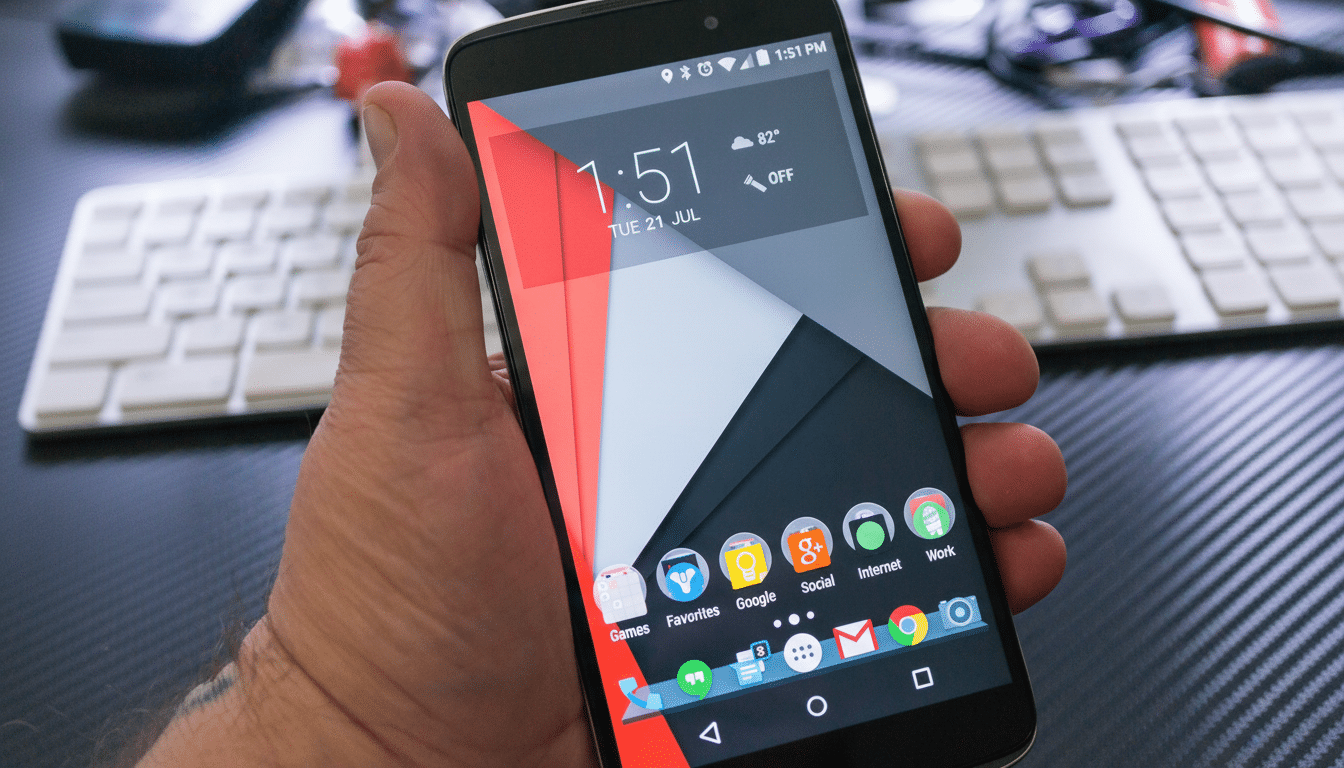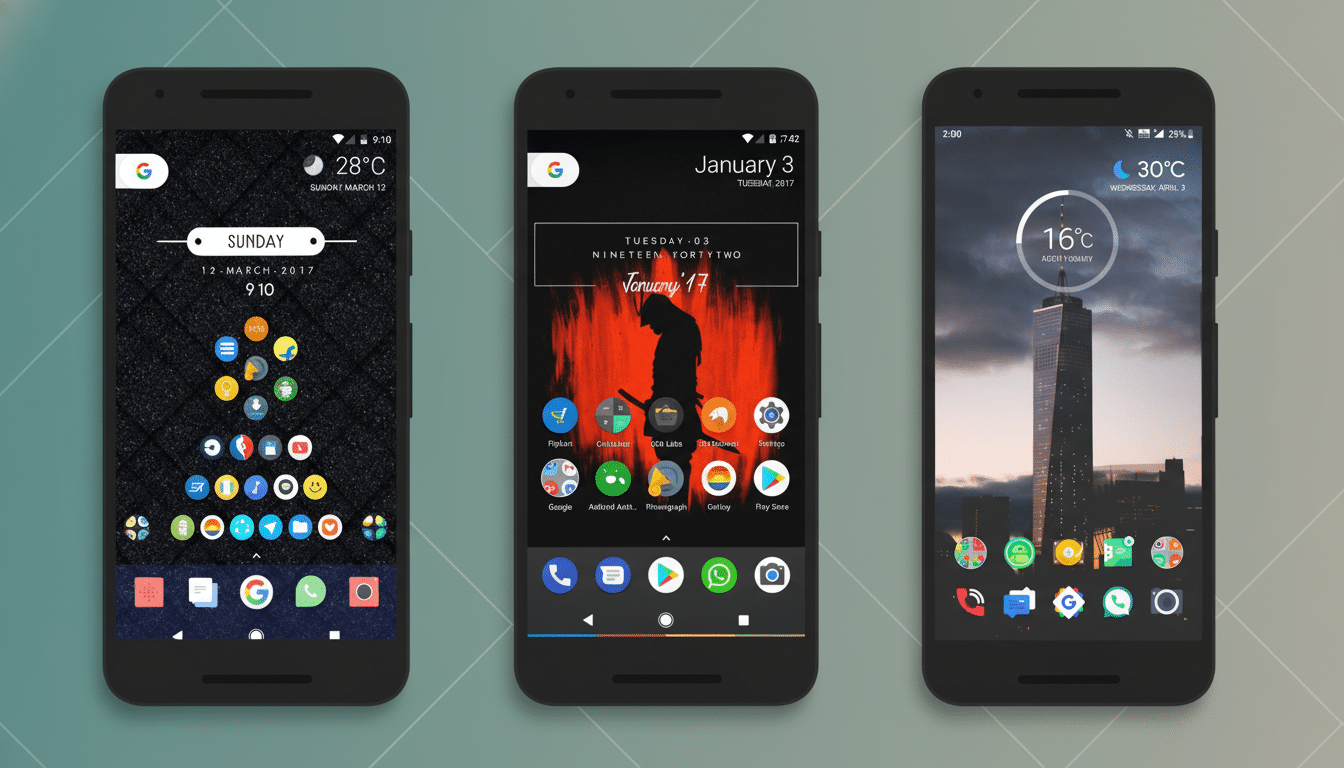With the announcement of Nova Launcher’s imminent departure, there was a gap left in the Android customization sector, and one competitor is already looking to overwhelm it.
Smart Launcher has thrown out an open challenge to Nova’s devout users, “here’s the chance to have a homescreen that isn’t quite Nova but feels, well, familiar with the opportunity to explore something new”.

A welcome mat for Nova loyalists
In a public post to the former users of nova, the team behind Smart Launcher stressed continuity and respect for the work of a popular tool. Basing their pitch around two ideas: don’t force people to relearn their phone and give them solid reasons to stay. To that end, they’ve published a Q&A that addresses fundamental questions including gesture parity, docks, app shortcuts, analytics/telemetry, and how it integrates with the app.
The first thing that I notice is pace. The team cites agressive release cycles as why bug fixes, feature refinements, and platform changes will not languish in a backlog – over 50 updates were pushed in just a year. For stubborn launcher fans who value stability, that is a real sign, not just a marketing one.
Features that make the switch easier
Smart Launcher is about muscle memory. It knows common gesture features – like swipe-actions that kick in based on what the icon represents – so you don’t have to re-think how to open apps or shortcuts. A dock — the label “experimental” is still plastered over it; is being prepared for more widespread deployment whereas the ability to pin pages enables you to make any screen really “home”.
Another selling point is that the launcher is modular. Smart Launcher doesn’t rely on the same kinds of kitchen-sinks of add-ons, and when you do find something, like a news reader or built-in widgets, it feels like the launcher was designed to accommodate it from the start, instead of being sewn into the theme. It already has icon packs, deeply customizeable appearance and a categorized app drawer as a signature feature for those who love organization without manually making folders.
Migration, privacy and the 12-month roadmap
For those who may be worried about losing an intricately calibrated configuration, the big promise is migration support. (The team says it is working on being able to import backups from Nova which makes things easier in terms of carrying your layout and preferences over). Granted, you can’t expect cross-app migration to repeat every legacy nuance, but even that handful of imports does wonders for boarding.
Privacy is discussed directly: the developers say they don’t collect your list of installed apps unless you opt in to optional features that require it. That position aligns with what a lot of power users want in a launcher — no collecting of your data and clear form or formless toggles.
With that said, Smart Launcher has shared a day to day roadmap for the next year, which aims to include features such as unlimited home screen scrolling, one‑tap folder actions, deeper folder customizations and quicker access to search coming soon.
These are the sorts of tweaks that matter from day to day, shaving seconds from your navigation, allowing you to refocus muscle memory in service to your layout, and removing the sharp edges where system gestures, launcher gestures, and OEM skins clash.

There has also been a statement that the release of Smart Launcher 7 will be free to current users, which is a nice advent of goodwill towards some fence-sitters who may want to take the trainers off and give it a proper spin without fear of having to pay to upgrade.
What this shift means in the launcher market
Home screen launchers cater to a niche — albeit a very passionate — audience, but it’s a big one. According to Google Play listings, Nova has accumulated tens of millions of installs in its lifetime and the reputation for granular control over your phone. The 10‑million‑install barrier has been breached, so it’s fair to say there’s an existing user base, and a dev that can keep up with the fast updates in Android from Google and OEMs.
That pace is also important because launchers are at the crossroads of system navigation, OEM customizations such as One UI or MIUI, and the ever-changing world of Android permissions. When platform transitions change touch handling or background activity limits, launchers frequently need rapid updates to avoid broken shortcuts or widget glitches. Regular updates aren’t just a nice-to-have; they’re defensive maintenance.
Smart Launcher’s outreach comes at a time of stiff competition, too. Fans of the third-party launchers that have long dominated the app landscape are debating which competitor to consider now that Niagara offers a lightweight feed, Lawnchair has open-source cred, Hyperion has the most intense theming capability and Microsoft Launcher builds the most productive top layer. With migration from Nova, and a roadmap heavily biased toward day‑to‑day usability, Smart Launcher is making a play for users who desire power without forfeiting polish.
Discussing the app in the open and actively soliciting feedback on Reddit, and via Discord channels, including the ModMyDevice server that previously housed Nova’s official presence. And that openness can be a differentiator: The shortest way to win over a skeptical crowd is to prove you’re listening — and shipping.
Transitions, as one developer note put it, aren’t ever easy after a beloved app withers. Smart Launcher is here to tell the world that transition doesn’t need to hurt, and a familiar, speedy, constantly updated home screen can carry Nova’s mission forward while forging its own path.

